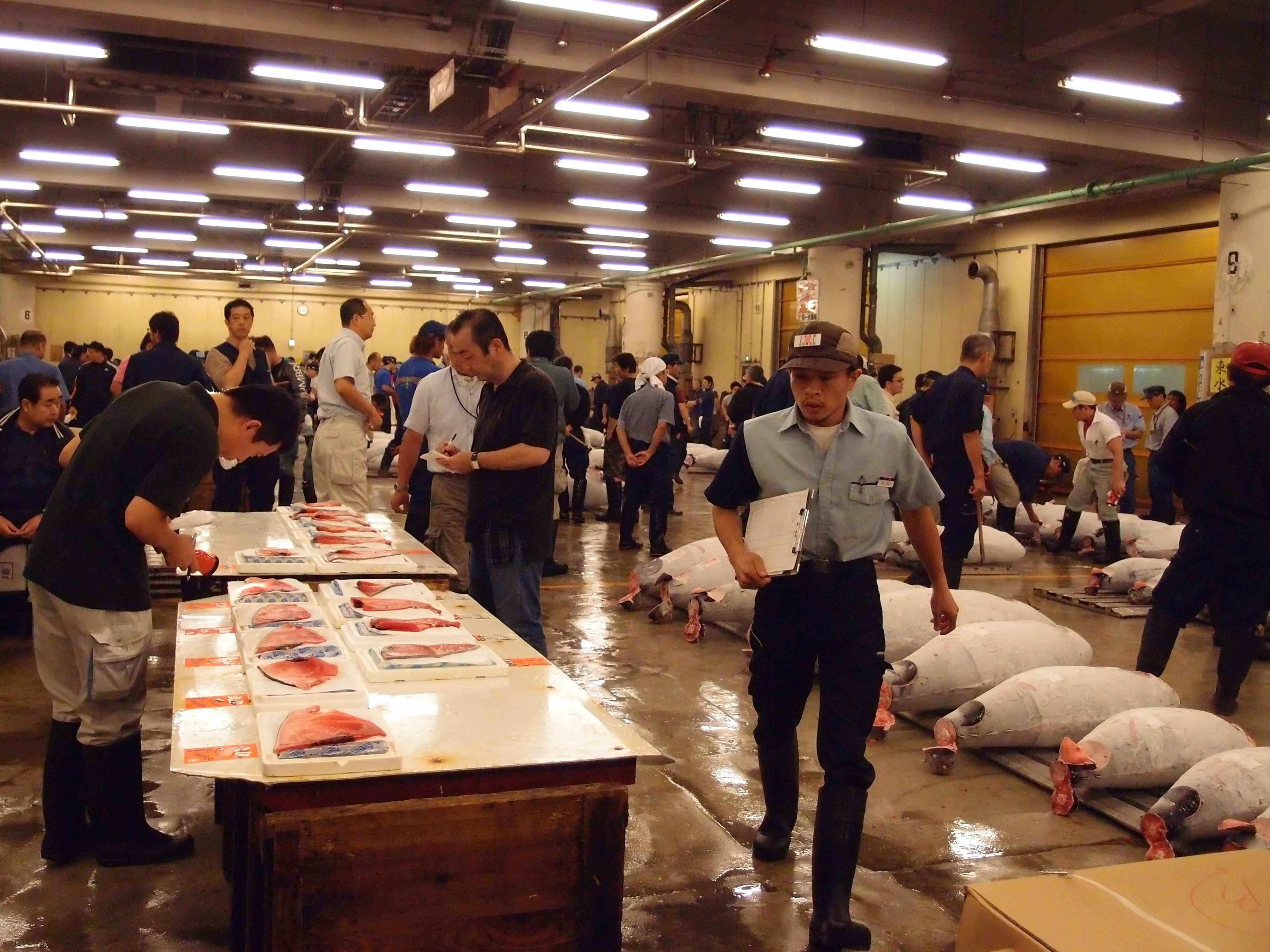Bluefin tuna has been extraordinarily valued in global market. It fetched a record $736,000 in the auction at Tokyo’s Tsukiji fish market earlier this year. (Medill/LiLi Tan)
WASHINGTON – Environmental advocates called Thursday for tighter regulations on illegal fishing of bluefin tuna in the Atlantic Ocean, home to one of the most valuable fish in the global market.
The International Commission for the Conservation of Atlantic Tunas allocates the quota each year for tuna fishing, but illegal fishing has contributed to an enormous number of additional catch of bluefin tuna. Between 2008 and 2011, illegal fishing reached 77 percent more than allowed, according to the Pew Environmental Group, which does environmental advocacy.
Bluefin tuna are easy to catch because they return to the same regions that have unique oceanographic properties to spawn. The habitat selection can be easily predicted, according to the Tuna Research and Conservation Center.
“The western [bluefin] population is highly depleted,” said Amanda Nickson, director of the Pew Environmental Group’s tuna campaign.
Bluefin tuna has been extraordinarily valued in Japan, and it gained popularity in recent years in the U.S. as more sushi restaurants opened. The bluefin fetched a record $736,000 in the auction at Tokyo’s fish market earlier this year. The lucrative tuna commerce resulted in a general increase of bluefin catch in the United States.
More than half of the U.S. Atlantic bluefin catch is exported, mainly to markets in Japan, according to the National Oceanic and Atmospheric Administration.
The fisheries for western Atlantic bluefin tuna are tightly regulated, and the U.S. government has put strict measures in place to ensure its compliance to rules set by ICCAT, said Monica Allen, the deputy director of the fisheries public affairs at NOAA.
But experts noted that despite strict regulations in the U.S., there are striking loophole in the ICCAT regulations, which makes it difficult to control illegal fishing.
Susan Lieberman, director of international policy at the Pew Environmental Group, said the commission has no requirement for fishing vessels on the high sea regarding unique identification.
“It created a significant problem,” Lieberman said. “If there is an evidence of illegal fishing vessels out there, government wants to do something but cannot identify what those vessels are.”
Experts said that illegal fishing is not problem in the United States, but as a contracting party of the ICCAT, the nation has responsibility to urge its members to comply to the agreed-upon rules.

